When Indian Prime Minister Narendra Modi’s government unilaterally revoked the limited autonomy and statehood of Indian-administered Kashmir in 2019, it claimed the move would wipe out decades of armed insurgency in the region, and usher in peace and development.
However, nearly three years later, peace has not been achieved in the disputed Himalayan valley region, with near-daily killings of insurgents, Indian security officials and civilians in firefights.
As Kashmiri Hindus face targeted killings, hundreds of people fled the valley in the second half of 2022. Meanwhile more than 100 Kashmiri fighters, mostly youths aged between 18 and 26 have been killed by the Indian police and military.
The fighters are accused of killing at least 16 people this year, seven of them belonging to the minority Hindu community.
Also Read: The Forty-Four-Days of Glory: Azerbaijan’s Struggle for Justice and Peace
Since the revocation of the special status of Indian-administered Kashmir on August 5, 2019, records say at least 197 security personnel, 675 Kashmiri fighters and 131 civilians have died in the wave of violence that has swept through the valley.
The escalating wave of violence has prompted critics to point to the failure of the Modi government’s repressive policies against the country’s only Muslim-majority region.
‘The alienation only deepens’, political observers commented on PM Modi, after coming to power in 2014.
Within months of his re-election, Indian-administered Kashmir was stripped of its partial autonomy, divided into two federal territories and under the direct control of New Delhi’s central government.
Also Read: Palestine Solidarity Month: A Collective Movement for Al-Aqsa and Palestine’s Freedom
The move to revoke the limited autonomy of Indian-administered Kashmir was backed by an unprecedented military deployment, making it one of the most militaristic regions in the world.
As part of the repressive measures imposed by Modi’s government in the restive region, hundreds of politicians including former chief ministers, rights activists, lawyers, and students were arrested. Meanwhile the security shutdown in the valley continued for months.
A new domicile law was introduced that allows outsiders to settle permanently in Indian-administered Kashmir. This right further raises concerns about demographic change and accusations of “settler colonial projects” in the region.
Modi’s government also released a redesigned list of constituencies in the region, which gives greater representation to Hindu districts. The move has drawn criticism from opposition parties who accuse New Delhi of “conspiring” in the region to weaken Muslims.
Also Read: Hassan al-Turabi: A Controversial Thinker from Sudan
The move by Modi’s Hindu nationalist government has only added to anti-Islam sentiment in the valley.
“The alienation only deepens. More and more people are disappointed and hopeless is normal,” former legislator and leftist leader Mohammad Yousuf Tarigami told Al Jazeera on Wednesday (June 15).
A Kashmiri Hindu, Mehbooba Mufti, the region’s former chief minister, accused Modi’s government of pushing youths toward armed resistance through a threatening approach.
“More and more young people are running away from home and joining militancy. It’s because of the anger and environment created by the BJP,” he told reporters.
Also Read: Who Exactly is the RSF Group Shaking Sudan?
“Those youths were killed within 2-3 days of joining the armed struggle. Some haven’t even picked up weapons yet. Everywhere it is Kashmiri blood being shed,” he said.
The BJP is gaining votes across India “on this policy of bloodshed where they show how much they can suppress” the Kashmiris.
“Look at how many of them are imprisoned and how much power they show,” he said.
Hate Based Policy
Also Read: The Two-State Solution (Palestine–Israel) in Historical Perspective
Mohamad Junaid, a Kashmiri academic based at the Massachusetts College of Liberal Arts in the United States, said the BJP’s policy in Kashmir was based on “hatred of Muslims and not on the harmless principle” of equal rights and citizenship.
“This is a policy that seeks to remove Kashmiris and their voices from the public sphere, and demonstrates that the Modi government is fulfilling the wish of the Rashtriya Swayamsevak Sangh (RSS) to turn Kashmiri Muslims into a minority,” he said, referring to the RSS, the BJP’s far-right ideological mentor formed in 1925.
The RSS is based on the same Nazi line in Europe to create an ethnic Hindu state from secular India.
Experts say the anti-Muslim hatred behind Modi’s Kashmir policy has also threatened the lives of the region’s Hindu minority, known as Pandits.
Also Read: Enchanted by K-Dramas, Dragged into Slander: Time for Muslims to Rise!
Nearly 200,000 Pandits were forced to leave the valley after armed resistance against New Delhi’s rule.
In 2010, the federal government launched a rehabilitation package for Pandits, which includes government jobs and housing. However, since last year, some Pandits who returned to the region under the scheme have become victims of killings due to armed conflict.
Pandits say they feel insecure amid escalating violence.
“We have never been as insecure as we did today. Nothing has changed for us in three decades. How can we live when we are threatened?” Ashwini Kumar, a 40-year-old Kashmiri Pandit told Al Jazeera.
Also Read: Creating Opportunity and Avoiding Misery; Lesson Learn on Waste Recycling Issue
Kumar had returned to his native village in Indian-administered Kashmir in 2010 after taking a job as an engineer.
“The claims made to justify lifting Article 370 were that it would end terrorism, and bring about massive development and investment in Kashmir, but that never happened,” said Ajai Sahni, political analyst and executive director at the Institute for Conflict Management in New Delhi.
Sahni said Modi’s government created “more polarization and alienation” in the valley.
“So as long as it continues, I don’t see a possible solution,” he said.
Also Read: Between the Treaty of Hudaybiyyah and Ceasefire in Gaza
The BJP meanwhile rejected the accusations, saying the government was trying to bring “normality to the region”.
Academic Junaid, said what the Modi regime wants in Indian-administered Kashmir is “to leave no room for political involvement, just want continuous repression”.
Kashmiri fighters, of course, will not accept this. For them, this policy is an extension of India’s longstanding policy of political repression, he continued.
If so, then the root of the problem is PM Modi with his ruling party BJP which is supported by the RSS ideology, must end his repressive policies against Muslims, which are also part of the establishment and existence of India itself. (T/RE1)
Also Read: Peace Cannot Be Achieved Without a Palestinian State
Source: Al Jazeera
Mi’raj News Agency (MINA)
Also Read: Facing the Wall: Netanyahu and Ambitions Built on Blood






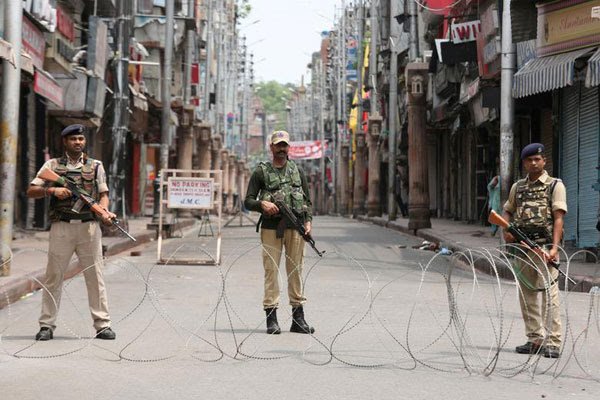

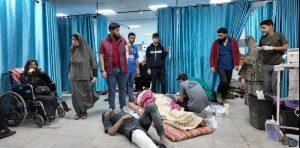
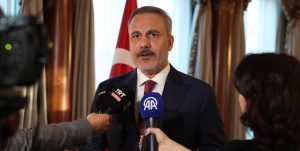

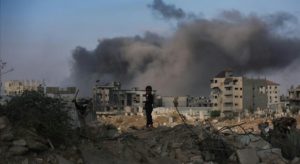


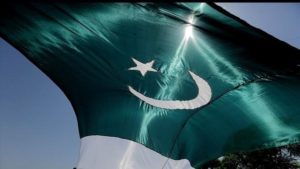
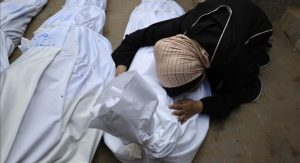
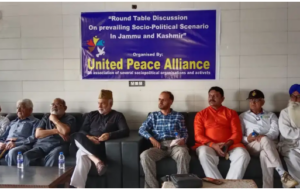
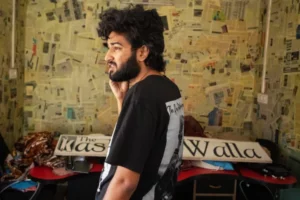
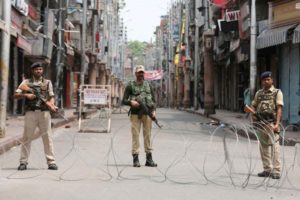
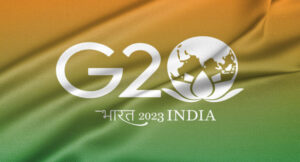
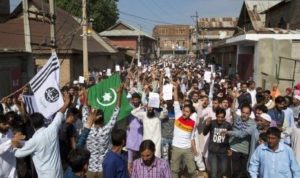







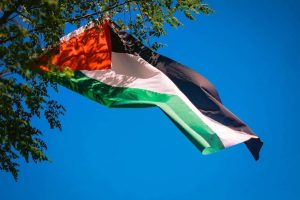
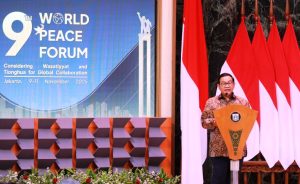




 Mina Indonesia
Mina Indonesia Mina Arabic
Mina Arabic